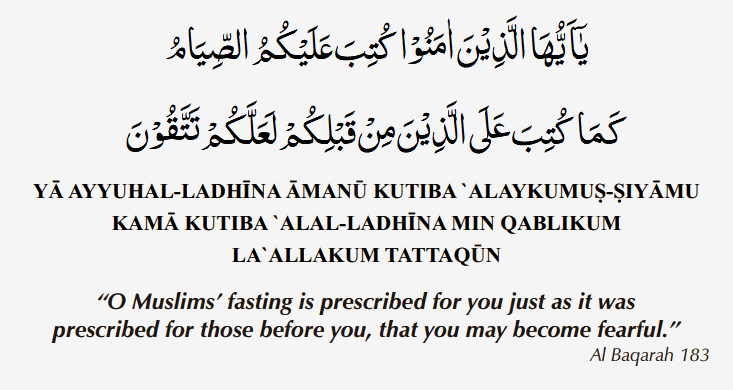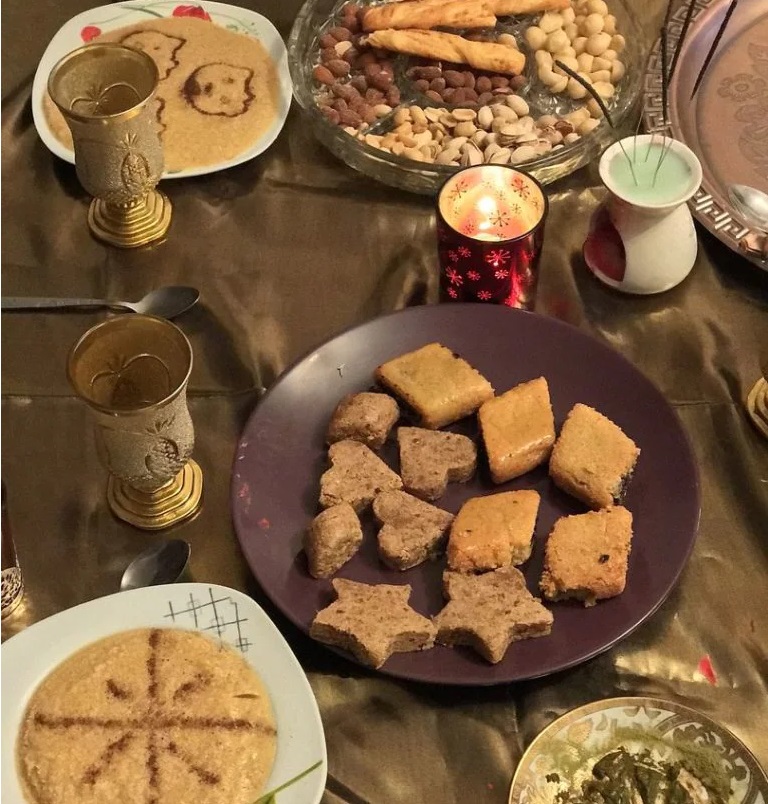Ramadan - Ramazan
Ramadan 2022 - Ramadan fasting - Ramadan Dua - Dua For Ramadan - Fasting in Ramadan - Importance of Fasting in Islam
Ramadan - Ramazan - Significance of Ramazan
Ramadan is the ninth month of the Islamic calendar and is considered to be the holiest month for Muslims. During this month, Muslims abstain from food, drink, and other physical needs during the daylight hours as an act of worship and submission to Allah. This is known as fasting and is one of the Five Pillars of Islam.
The purpose of fasting during Ramadan is to develop self-control, discipline, and spiritual growth. It is also believed to be a time of increased blessings, forgiveness, and closeness to Allah. In addition to fasting, Muslims also engage in increased prayer, reading of the Quran, and acts of charity during this month.
The fast begins at dawn, known as Suhoor, and ends at sunset, known as Iftar. During this time, Muslims are not allowed to eat, drink, or engage in any other physical needs. This includes smoking and engaging in sexual activity. However, there are exceptions for those who are ill, pregnant, breastfeeding, or travelling. These individuals are encouraged to make up the missed fasts at a later time. The month of Ramadan is also a time for increased charity and generosity. Muslims are encouraged to give to the poor and needy, known as Zakat, as well as engage in other acts of charity. This is believed to increase one’s blessings and rewards during this month.
One of the most important nights of Ramadan is the Laylat al-Qadr, also known as the Night of Power. It is believed to be the night when the first verses of the Quran were revealed to the Prophet Muhammad. Muslims believe that on this night, the blessings and forgiveness of Allah are greater than on any other night of the year. After the month of Ramadan, Muslims celebrate Eid al-Fitr, also known as the Festival of Breaking the Fast. This is a time of celebration and joy, marked by special prayers, feasting, and the giving of gifts.
Ramadan is a time of spiritual reflection and growth, as well as increased devotion to Allah. It is a time for self-control, discipline, and charity. It is also a time for increased closeness to Allah and the opportunity to gain blessings and forgiveness. It is important to remember that Ramazan is not only about abstaining from food and drink, but also about developing oneself spiritually and becoming a better person. In addition to fasting, Muslims also engage in additional acts of worship during Ramadan. This includes increased prayer, reading of the Quran, and acts of charity. The Taraweeh prayer, which is a special prayer performed only during Ramadan, is also a significant aspect of this month. The Taraweeh prayer is performed after the Isha prayer and consists of 20 units.
During Ramadan, Muslims also engage in increased acts of charity. This includes giving to the poor and needy, known as Zakat, as well as engaging in other acts of charity. This is believed to increase one’s blessings and rewards during this month. Ramazan is a time of spiritual reflection and growth, as well as increased devotion to Allah. It is a time for self-control, discipline, and charity. It is also a time for increased closeness to Allah and the opportunity to gain blessings and forgiveness.
As Ramadan is a month of self-control and self-discipline, it is also important to be mindful of one’s actions and speech. Muslims are encouraged to avoid negative or harmful behaviour, such as gossiping or arguing and instead focus on positive actions and behaviour

In addition to fasting, Muslims also increase their prayer and worship during Ramadan. Muslims are encouraged to attend the mosque for Taraweeh, which is a special prayer held after the evening prayer during Ramadan. During this prayer, the entire Quran is recited over the course of the month. Charity is also an important aspect of Ramadan. Muslims are encouraged to give to those in need and to perform acts of kindness and generosity. This is a time when Muslims are reminded of the importance of helping others and the blessings that come with charitable acts.
The end of Ramadan is marked by the celebration of Eid al-Fitr, which is a joyous occasion that involves prayer, food, and festivities. This marks the end of the month-long fast and the beginning of a new month in the Islamic calendar. Overall, Ramadan is a time of spiritual renewal and devotion for Muslims worldwide. It is a time when Muslims are encouraged to reflect on their faith and strengthen their relationship with God. Through fasting, prayer, and acts of charity, Muslims are reminded of the importance of discipline, self-control, and empathy for others.
Why do Muslims fast during Ramadan?
Fasting is important during Ramadan as it allows Muslim to devote themselves to their faith, get closer to Allah and learn patience and compassion. It’s about nourishing your soul, rather than only focusing on your physical body. It’s also one of the Five Pillars of Islam which are the foundation of how Muslims live their lives (the others are faith, prayer, charity and pilgrimage to the holy city of Mecca).
Fasting is usually done by all Muslims except those who are sick, pregnant, lactating, menstruating, elderly or travelling. If you miss fasting days you can make up for them throughout the year.

SEHRI
Verily, Allah and His angels send mercy upon those who eat SEHRI. Eat Sehri because in Sehri there is barakah
DAYS OF RAMADAN
The fish in the sea seek forgiveness for those fasting until they break their fast. Allah ﷻ decorates Jannah every day and then says, “The time is near when my pious servants shall cast aside the great trials and come to me.” During each day and night of Ramadhan, Allah ﷻ sets free a great number of souls from hell. In addition, for every Muslim, during each day and night, at least one du’a is certainly accepted.
IFTAAR
Whosoever gives something to a fasting person in order to break the fast, for them there shall be forgiveness for their sins and emancipation from the fire of Jahannam, and for him (the one who gives) shall be the same reward as for them (whom they fed), without that persons (the one who was fed) reward being diminished in the least. Whoever gave a person who fasted water to drink, Allah ﷻ shall give them a drink from His fountain on the day of Judgement, where after they shall never again feel thirsty until they enter Jannah. The fasting person experiences two occasions of delight; at the time of Iftar and at the time they meet their Rabb. Prayer made by a fasting person at the time of breaking fast is accepted.
NIGHTS OF RAMADAN
Whoever stands in prayer and worship in the nights of Ramadhan, with Iman and with sincere hope of gaining reward, all his previous sins will be forgiven. Allah ﷻ has ordained fasting in Ramadhan compulsory, and I have decreed (by the command of Allah ﷻ) wakefulness at night (tarawih, etc.) Sunnah. Whomsoever, in the state of Iman and with hope of gaining reward, fasts in Ramadhan and stays awake at night emerges from sin, purified as the day when their mother gave birth to them. For every salaah performed during the nights of Ramadhan, Allah ﷻ records one and a half thousand good deeds for every Sajdah.
FIVE PILLARS OF ISLAM
The Five Pillars of Islam are the core beliefs and practices that are central to the Islamic faith. They provide a framework for Muslim life and are considered essential for a person to be considered a practising Muslim. These five pillars include the declaration of faith, prayer, fasting, charity, and pilgrimage.
Declaration of Faith:
The first pillar of Islam is the declaration of faith, also known as the Shahada. It is a simple statement that affirms the belief in the oneness of God and the prophethood of Muhammad. The Shahada is recited daily by Muslims and is considered the cornerstone of the Islamic faith. The statement is, “There is no god but Allah, and Muhammad is the messenger of Allah.” By reciting this statement, Muslims acknowledge their belief in the absolute unity of God and the prophethood of Muhammad as the last messenger of God.
Prayer:
The second pillar of Islam is prayer, also known as Salah. Prayer is an essential component of Muslim life, and Muslims are required to perform it five times a day. The five daily prayers are Fajr (dawn), Dhuhr (noon), Asr (afternoon), Maghrib (sunset), and Isha (night). Muslims must perform these prayers facing the Kaaba, the sacred mosque in Mecca, and must follow a specific set of movements and recitations. Prayer is intended to be a form of communication with God, and it is considered a way for Muslims to maintain their spiritual connection with their creator.
Fasting:
The third pillar of Islam is fasting, also known as Sawm. Fasting is the act of abstaining from food, drink, and other physical needs from dawn until sunset during the month of Ramadan. Muslims fast during this month to gain self-discipline, self-control, and empathy for those who are less fortunate. It is believed that during this month, the gates of heaven are open, and the gates of hell are closed, making it an auspicious time for spiritual reflection and increased devotion to God.
Zakat / Charity:
The fourth pillar of Islam is charity, also known as Zakat. Muslims are required to give a portion of their wealth to those in need as a way of promoting social justice and compassion. Zakat is not considered a form of charity but is viewed as a duty, and it is a way of purifying one’s wealth and soul. The amount of Zakat required is 2.5% of one’s wealth, and it is given to the poor, the needy, or those in debt.
Hajj / Pilgrimage:
The fifth pillar of Islam is a pilgrimage, also known as Hajj. Muslims are required to make a pilgrimage to the sacred city of Mecca at least once in their lifetime if they are physically and financially able to do so. During this pilgrimage, Muslims perform a series of rituals that commemorate the life of the Prophet Abraham and his family. The Hajj is considered the largest annual gathering of people in the world, and it is a symbol of the unity of Muslims worldwide.
In conclusion, the Five Pillars of Islam are the core beliefs and practices that provide a framework for Muslim life. They are the declaration of faith, prayer, fasting, charity, and pilgrimage. Through these pillars, Muslims are reminded of the importance of their relationship with God, self-discipline, compassion for others, and social justice. These pillars also serve as a way to maintain a sense of community and unity among Muslims worldwide.
